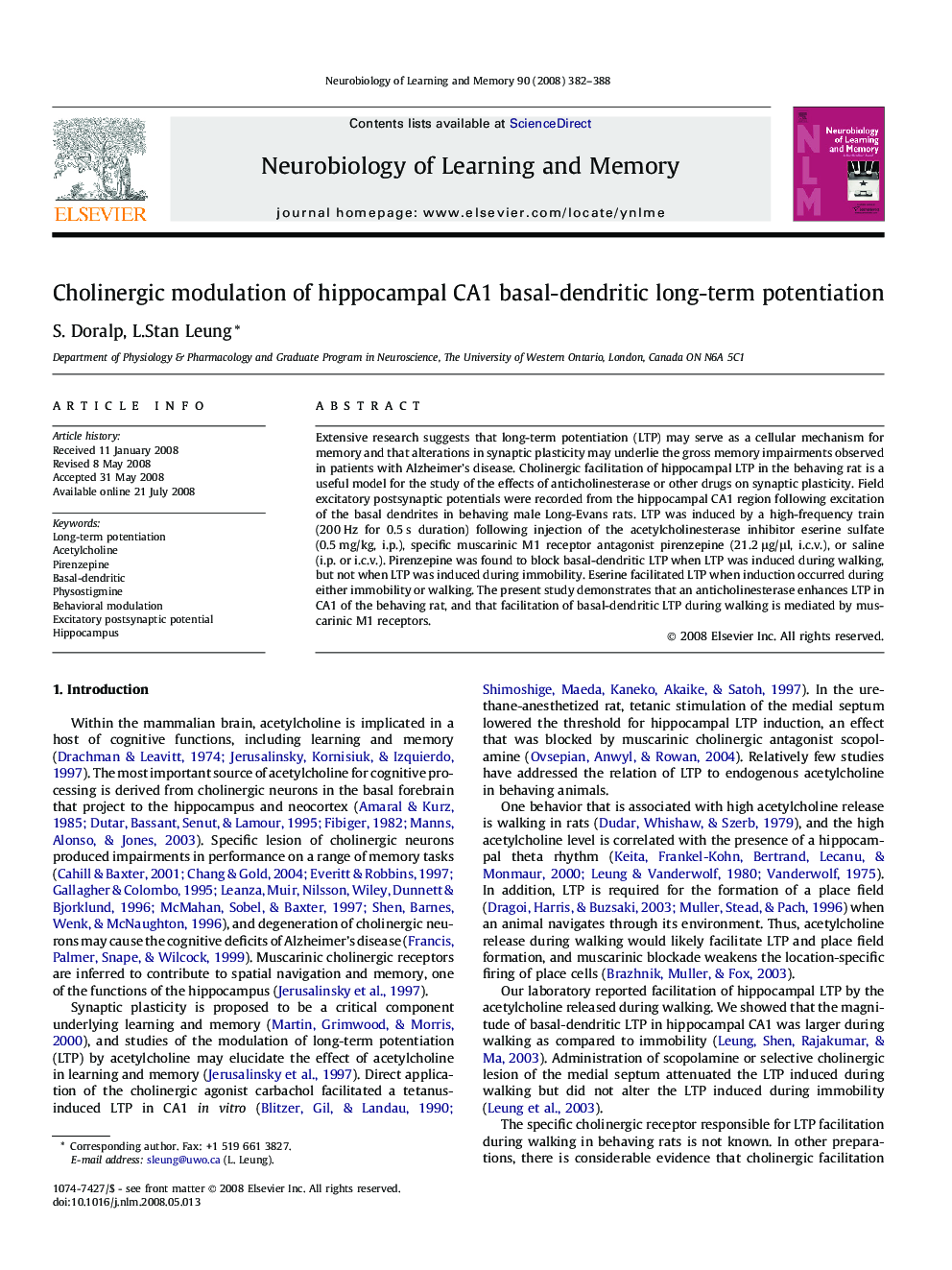| Article ID | Journal | Published Year | Pages | File Type |
|---|---|---|---|---|
| 937104 | Neurobiology of Learning and Memory | 2008 | 7 Pages |
Extensive research suggests that long-term potentiation (LTP) may serve as a cellular mechanism for memory and that alterations in synaptic plasticity may underlie the gross memory impairments observed in patients with Alzheimer’s disease. Cholinergic facilitation of hippocampal LTP in the behaving rat is a useful model for the study of the effects of anticholinesterase or other drugs on synaptic plasticity. Field excitatory postsynaptic potentials were recorded from the hippocampal CA1 region following excitation of the basal dendrites in behaving male Long-Evans rats. LTP was induced by a high-frequency train (200 Hz for 0.5 s duration) following injection of the acetylcholinesterase inhibitor eserine sulfate (0.5 mg/kg, i.p.), specific muscarinic M1 receptor antagonist pirenzepine (21.2 μg/μl, i.c.v.), or saline (i.p. or i.c.v.). Pirenzepine was found to block basal-dendritic LTP when LTP was induced during walking, but not when LTP was induced during immobility. Eserine facilitated LTP when induction occurred during either immobility or walking. The present study demonstrates that an anticholinesterase enhances LTP in CA1 of the behaving rat, and that facilitation of basal-dendritic LTP during walking is mediated by muscarinic M1 receptors.
